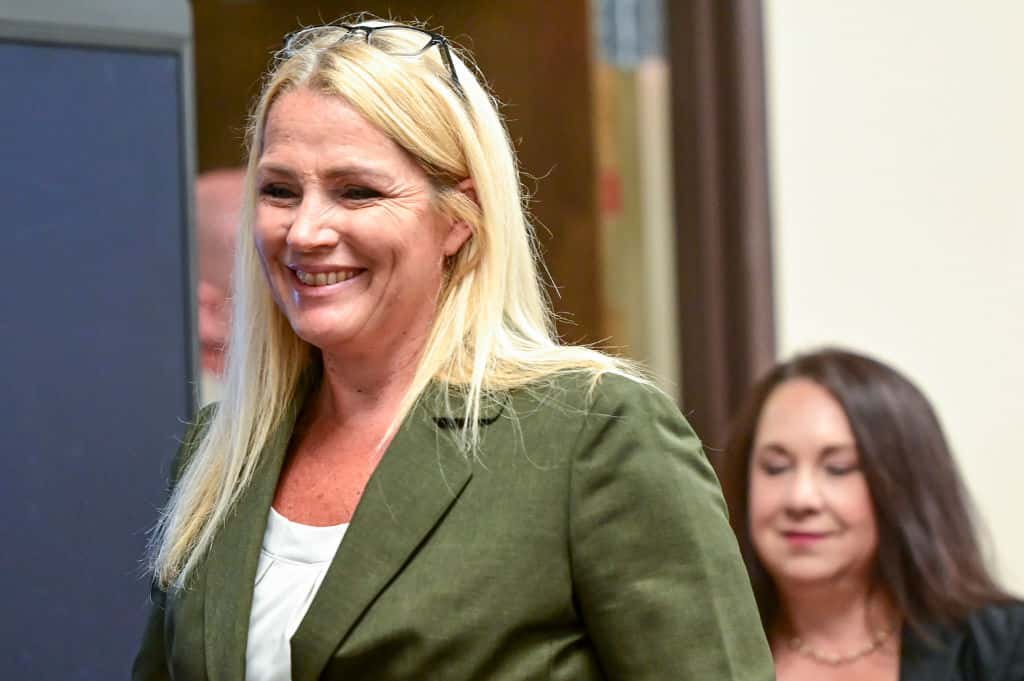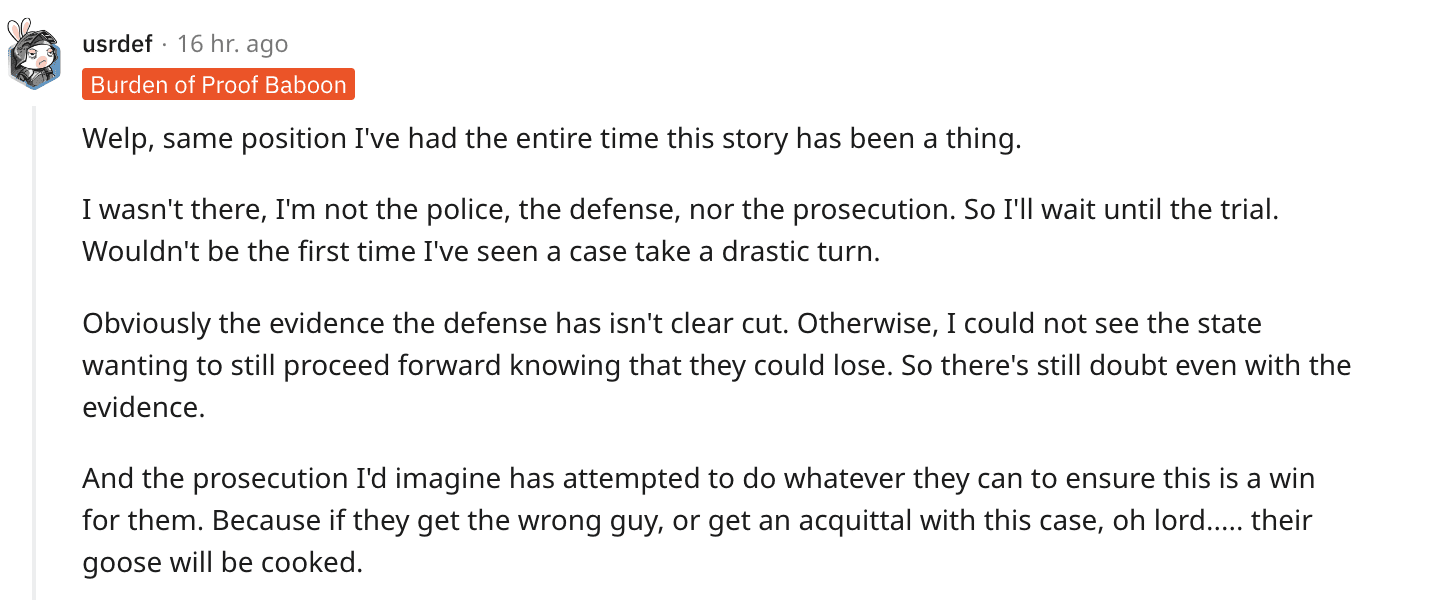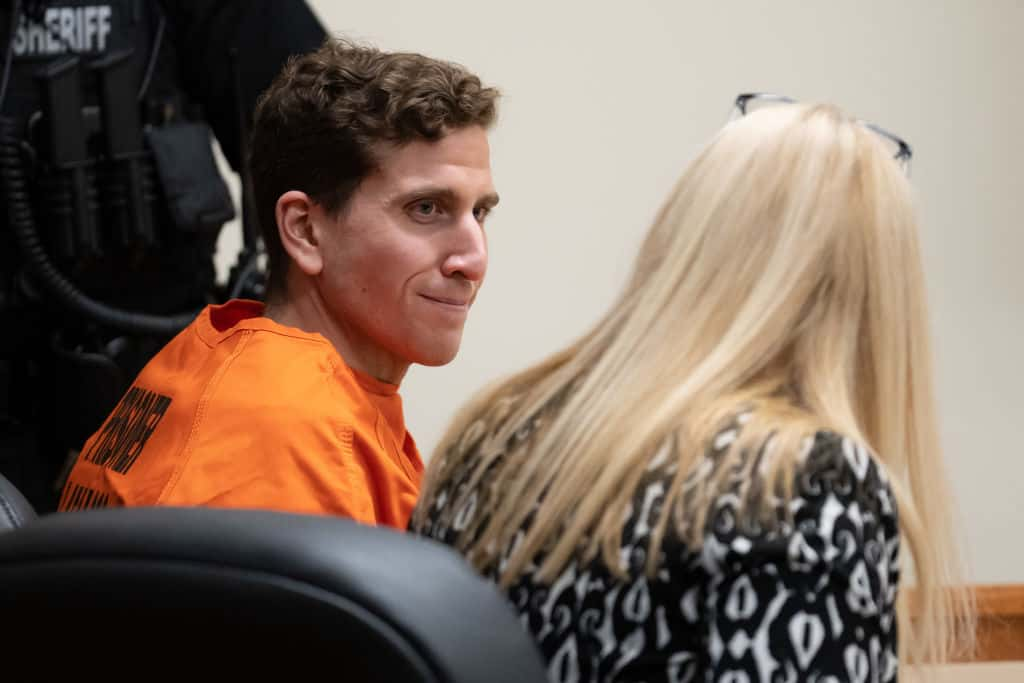Does Bryan Kohberger have an alibi? Idaho murders suspect's lawyers suggest they have proof he was elsewhere when murders were committed

This article is based on sources and MEAWW cannot verify this information independently.
MOSCOW, IDAHO: The upcoming trial of Bryan Kohberger, the accused University of Idaho killer, has taken a dramatic turn as his legal team hinted at presenting evidence supporting an alibi for the time when four college students were brutally murdered in their off-campus home in November 2022. In court documents released on Tuesday, July 25, Kohberger's defense attorney, Anne Taylor, reaffirmed his decision not to provide prosecutors with an alibi but hinted that evidence pointing to his presence elsewhere would be disclosed during the trial.
Does Bryan Kohberger have an alibi?
"This evidence corroborating Mr. Kohberger being at a location other than the King Road address will be disclosed pursuant to discovery and evidentiary rules," Taylor wrote, emphasizing the adherence to the legal process. The defense's stance suggests that they might rely on an affirmative alibi defense, potentially without the defendant himself testifying.

Criminal defense attorney John Henry Browne, known for representing serial killer Ted Bundy, weighed in on the matter, speculating that cellphone data might be used to place Kohberger far from the murder scene. "My guess is that the cellphone data may try and put the defendant in a place not close to the murder scene," he told Fox News, adding, "Alibi is an AFFIRMATIVE defense, so notice to the State is required."
The attorney explained that Idaho and other states required criminal defendants to "give notice to the state" of an alibi defense. "When the government calls experts to talk about cell towers and the location of cellphones and things like that, then perhaps the defense is going to cross-examine those experts on cellphone information to establish that his cellphone was somewhere else is my guess," Browne added.
Public reaction and uncertainty
The news of a possible alibi has sparked a flurry of discussions on social media, with many expressing their surprise at the turn of events. While some remain cautious, considering that the evidence disclosed by the defense may not be entirely clear-cut, others have expressed concern that the case could crumble if Kohberger's alibi holds up.
"Wouldn't be the first time I've seen a case take a drastic turn," one Redditor wrote, adding, "Obviously, the evidence the defense has isn't clear-cut. Otherwise, I could not see the state wanting to still proceed forward knowing that they could lose. So there's still doubt even with the evidence."
"I was sure they will convict and the state have been really confident but I feel the case is now falling apart. If he didn’t do it then Fair do’s but if he did and the state screwed up along the way and he walks free.. bad times," another commented.
"I'm not reading anything into this. I see it as the only option the defense has is to try and put him somewhere. We have only seen a minuscule amount of the evidence released. This was always their only option," someone else offered.



A recap of the tragedy
The trial, scheduled for October 2, in Latah County Court, Moscow, Idaho, revolves around the murder of four University of Idaho students, Kaylee Goncalves, Maddie Mogen, Xana Kernodle and Ethan Chapin, who were found murdered in their off-campus home just before Thanksgiving break in 2022. The victims sustained multiple stab wounds between 3 and 4 am on November 13, with signs of a struggle evident at the crime scene.

Two roommates residing on the lower floor of the house were fortunate to survive unharmed. Kohberger, who had allegedly stayed on campus for weeks after the murders before driving cross-country to Pennsylvania with his father for Christmas, was arrested on December 30, 2022. He was later indicted on charges of felony burglary and four counts of first-degree murder, with prosecutors expressing their intention to seek the death penalty.

The defense's argument
Defense attorney Taylor had previously suggested that one of the surviving roommates, Bethany Funke, possessed "exculpatory" evidence that could exonerate Kohberger. However, the grand jury indictment spared Funke from testifying at the preliminary hearing. That said, throughout the legal proceedings, Kohberger has remained steadfast in his refusal to enter a plea, and a not-guilty plea was entered on his behalf during the May arraignment. He has been detained in the Latah County Jail since his extradition from Pennsylvania.










